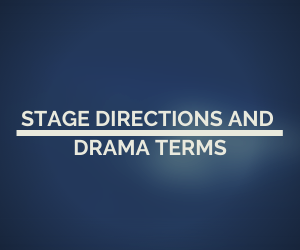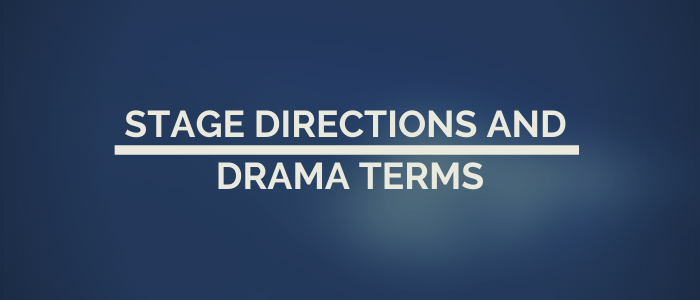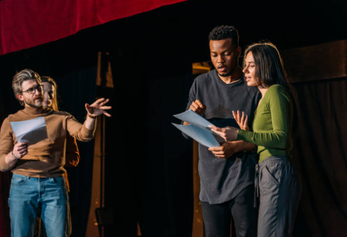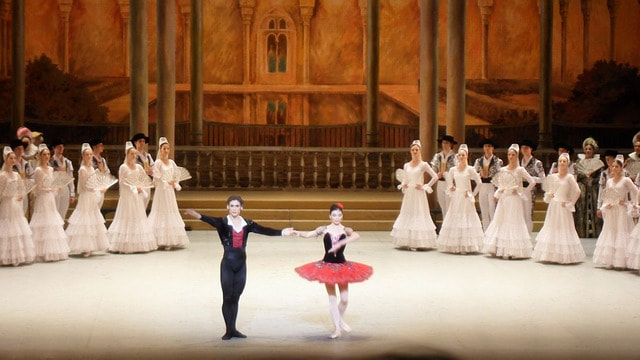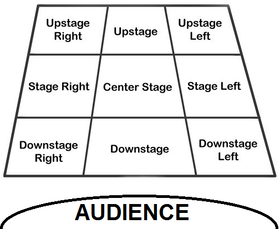a) The setting
- (The morning sunlight fills the room) What a lovely day!
- (ROBIN HOOD is angry) Shut up!
- (surprised) I didn’t expect to see you here.
- (Perplexed) No.
- (ALICIA enters the room)
- (Enter ROBIN HOOD, armed with a sword) Ah, but remember, faint hearts never won fair lady.
- (From the right, TOM CARPENTER, the Salesman, enters, carrying two boxes of chocolates cookies)
- (MAID MARIAN covers her face with her hands) Oh my God!
- (Taking off her right shoe) I'm so tired.
- (sits at the table at the left side of LYNDA) You know, he was doing his best.
- (Taking JULIET’s hand) Your hand is like a holy place that my hand is unworthy to visit.
- (Exit, pursued by a bear)
- (Laughing) What a fool!
- (In a creepy voice) I'll be wathcing you.
- C: Center stage
- D: Downstage
- U: Upstage
- R: Right
- L: Left
- DR: Downstage right
- DL: Downstage left
- UR: Upstage right
- UL: Upstage left
Antagonist: A character, situation, feeling, idea, or thing that opposes the main character.
Balcony: Area above the stage roof used for balcony scenes or for seating musicians or members of the audience.
Cast: The actors and actresses in a play.
Characters: People who take part in the story.
Chorus: The chorus was a single person who recited a prologue.
Dialogue: What the characters say in the play.
Enter: Stage direction indicating the entrance onto the stage of a character or characters.
Exit: Stage direction indicating the departure of a character from the stage.
Monologue: A long dramatic speech by a single actor.
Prologue: The introduction of a play.
Protagonist: The main character.
Scene: The part of an act that takes place in one location.
